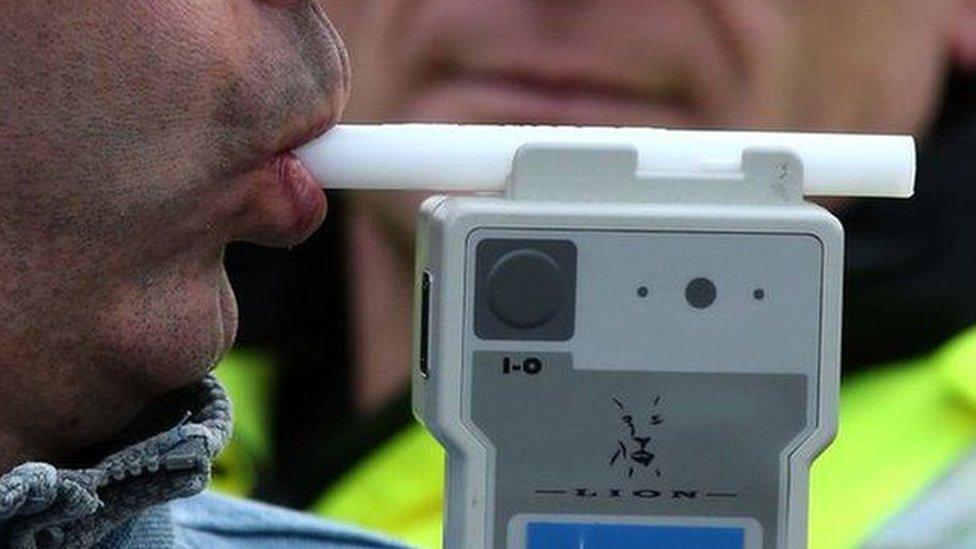Driving bans: 'Limited' detections of cross-border disqualifications
- Published

Drivers can be disqualified for a number of reasons including driving while under the influence of drink or drugs
The cross-border system for identifying disqualified drivers has been criticised by Northern Ireland's criminal justice watchdog.
Driving bans have been recognised on both sides of the border since August 2017.
But police on both sides of the Irish border do not have automatic access to each other's records.
The Chief Inspector of Criminal Justice in NI Jacqui Durkin said that limited the detection of disqualified drivers.
"Although the mutual recognition of driving disqualifications was in place since August 2017, there remained a number of risks to be remedied," she said.
Drivers can be disqualified for a number of reasons including reckless or dangerous driving, hit-and-runs and driving while under the influence of drink or drugs.
Licences revoked
She was speaking following her organisation's .
She said there were also a significant number of drivers in the Republic of Ireland using UK licences.
"These licences may be subject to penalty points that are not recorded against the licence, making it impossible for the PSNI to detect offenders that may have reached the threshold of penalty points that would see their licences revoked under normal circumstances," she said.
"There is also the potential that even with a reciprocal agreement the disqualification in the RoI is not being enforced."
She also said the UK's exit from the EU on 31 January 2020 had prompted the authorities in the Republic of Ireland to recall all UK licences for anyone resident in the RoI.
Currently, there are an estimated 40,000 licences still to be surrendered.
Ms Durkin said she was concerned more had not been done to fully achieve five recommendations made in her original report four years ago.
'Death and serious injury'
"The recommendations made over three years ago by the inspection team aimed to deliver improvement around road traffic enforcement in Northern Ireland as every death or serious injury on our roads is one too many," said Ms Durkin.
"Fifty six people lost their lives in 2019 as a result of a road traffic collision with two thirds of those crashes occurring on rural roads," she said.
"It is estimated there were around 31,000 uninsured drivers on our local roads in 2018-19 and with research showing those without insurance are five times more likely to be involved in a collision, we must maintain an ongoing focus on effective road traffic enforcement and road safety."
Ms Durkin also expressed her concern that a recommendation to set up a centralised traffic court and road traffic prosecution team in Northern Ireland had not been achieved.
She welcomed the steps taken by the PSNI to make greater use of Automatic Number Plate Recognition (ANPR) cameras to detect and stop those breaking the law by driving without insurance, road tax or a valid MoT (vehicle test) certificate.
Inspectors also welcomed the progress made by the Driver and Vehicle Agency to use digital technology to carry out roadside checks on heavy goods and other vehicles, and support the detection and prosecution of motoring and licensing offences.Ėý
- Published1 August 2017
- Published12 May 2014